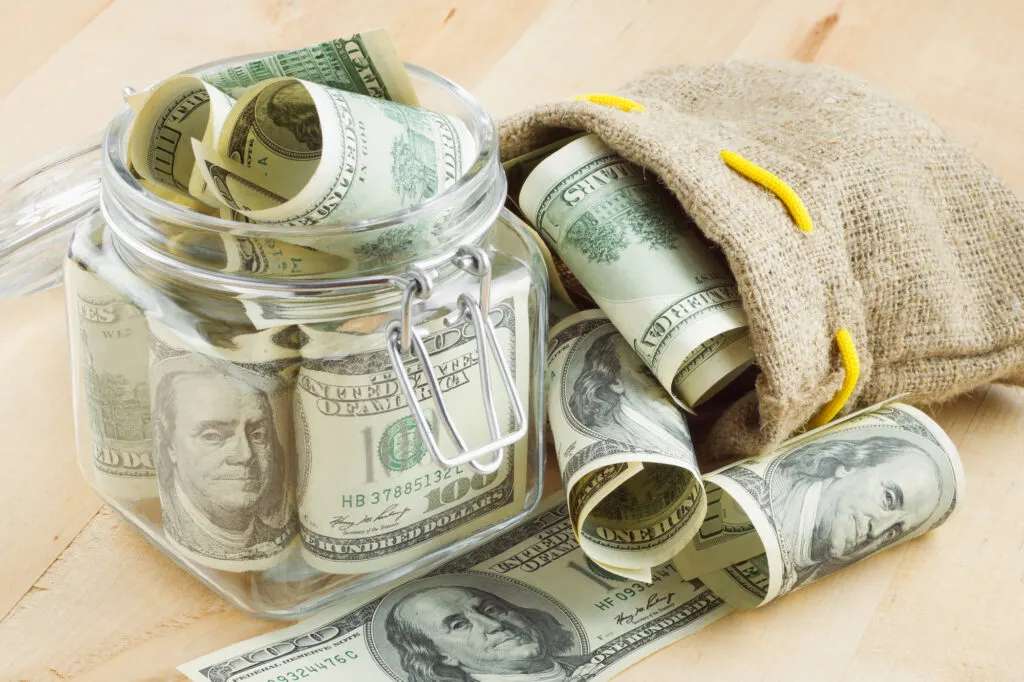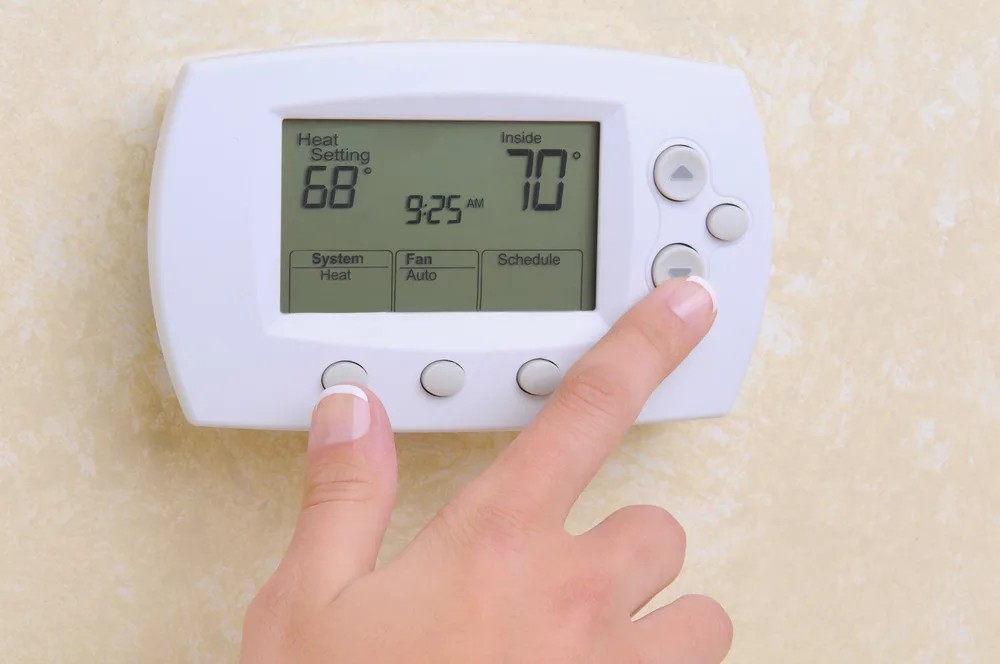When the going gets tough, the tough get saving! In these uncertain times, it’s more important than ever to make every penny count. That’s why we’ve compiled the ultimate list of 100 Tips for Saving Money When Times Are Tough.
Whether you’re struggling with job loss, unexpected expenses, or just trying to stretch your budget further, we’ve got you covered.

From savvy shopping strategies to creative ways to cut costs, our tips are practical, actionable, and guaranteed to make a difference. So if you’re ready to take control of your finances and weather any storm, read on and start saving today!
The tips below may not all apply to you and some may seem like they are common knowledge but remember, these tips are just tips. It’s up to you whether you want to apply them to your life or not.
The bottom line is this – if you’re looking for easy ideas that can help you stop living paycheck to paycheck or even just help you be able to survive right now, these can certainly help!

100 Tips for Saving Money When Times Are Tough
- Create a budget and stick to it.
- Shop for grocery items at Dollar Tree (they do have some awesome stuff)
- Shop around for the best deals.
- Use coupons and promo codes when shopping.
- Buy generic or store brand products.
- Cut down on eating out and cook meals at home.
- Use a meal planning app or service to save time and money.
- Make your own coffee at home instead of buying it.
- Cut back on alcohol and entertainment expenses.
- Consider carpooling or public transportation to save on gas.

- Take advantage of free or low-cost activities in your area.
- Shop for clothing and household items at thrift stores or consignment shops.
- Cancel unnecessary subscriptions and memberships.
- Use cash instead of credit cards to avoid overspending.
- Buy in bulk for items you use frequently.
- Keep an eye out for sales and discounts.
- Check your utility bills for ways to save energy and reduce costs. Look into budget billing.
- Use a programmable thermostat to regulate heating and cooling costs.
- DIY home repairs instead of hiring professionals (within reason of course).
- Borrow books and movies from the library instead of buying them.

- Consider refinancing your mortgage or car loan.
- Negotiate with your service providers for lower rates.
- Use online tools to track your spending and identify areas to cut back.
- Avoid impulse buying by waiting 24 hours before making a purchase.
- Cut down on meat and dairy consumption to save on grocery bills.
- Start a garden to grow your own produce.

- Use a water filter instead of buying bottled water.
- Take advantage of free exercise options like walking or jogging.
- Purchase durable items that will last longer.
- Use rechargeable batteries to avoid constantly buying new ones.
- Use natural cleaning products instead of expensive chemicals.
- Reduce the temperature on your water heater to save on energy costs.
- Purchase items in the off-season for lower prices. For example, buy winter clothing when on clearance in a size up for your kids to save for the next season.
- Use cloth napkins instead of disposable ones.
- Make your own cleaning products from household items like vinegar and baking soda.

- Cut down on driving by consolidating errands and appointments.
- Reduce your home’s water usage by taking shorter showers and fixing leaks.
- Use public Wi-Fi instead of using data on your phone.
- Shop for groceries at discount stores or discount grocery chains.
- Use a rewards credit card and pay it off in full each month. Only do this if you will actually pay it off.
- Cut back on gift giving for holidays and special occasions.

- Turn off lights and electronics when not in use.
- Host potluck dinners instead of expensive meals out.
- Use online coupon codes and cashback sites when shopping. My favorite right now is Rakuten. You can get $30 back when you join!
- Use a clothesline or drying rack instead of using a dryer.
- Buy meat in bulk and freeze it for later use. You can even split the cost and share the meat with friends and family.
- Use a slow cooker to make meals from cheaper cuts of meat.
- Use a home energy monitor to track your electricity usage.
- Take advantage of free credit reports to monitor your credit score.

- Cut back on beauty and grooming expenses by doing them yourself.
- Take advantage of free trials for subscription services, but remember to cancel before they start charging.
- Choose low-cost hobbies like reading or hiking.
- Use a programmable coffee maker to save on electricity costs.
- Reduce your heating and cooling costs by adjusting the thermostat at night.
- Buy items in bulk with friends or family to take advantage of volume discounts.
- Only buy items if they are on sale or you have a coupon.
- Use a rain barrel to collect water for your garden (check the local laws in your area).
- Stop using meal delivery services like Uber Eats and Door Dash
- Plan your meals around what’s on sale at the grocery store.

- Reduce your grocery bill by buying in-season produce.
- Purchase pre-owned cars instead of new ones to save on depreciation.
- Use a budgeting app to keep track of your expenses.
- Rent out a spare room on Airbnb to earn extra income.
- Cut back on cable TV expenses by switching to streaming services. You can even get some streaming services for free.
- Use a refillable water bottle instead of buying bottled water.
- Reduce your cell phone bill by switching to a lower-cost carrier or plan. You can even get onto a family plan and pay just your line of service.
- Shop at discount stores or warehouse clubs for household items.
- Take advantage of free classes and workshops in your area.
- Reduce your car insurance costs by increasing your deductible.
- Use a fan instead of air conditioning to save on electricity costs.
- Consider a staycation instead of an expensive vacation.
- Take advantage of free online resources for learning and personal development.
- Avoid buying unnecessary gadgets and electronics.
- Purchase items at garage sales or flea markets for lower prices.

- Use a clothes steamer instead of dry cleaning expensive items.
- Consider switching to a lower-cost gym or exercise at home.
- Use reusable shopping bags to save on the cost of plastic bags (if you live in an area that charges for them).
- Take advantage of free trial periods for services like Amazon Prime.
- Use a bike or walk instead of driving for short trips.

- Repair items instead of replacing them.
- Use a home air purifier instead of buying expensive air filters.
- Take advantage of free online resources for entertainment like books, music, and movies.
- Cut back on eating meat and choose plant-based protein sources to save on grocery costs.
- Choose a credit card with no annual fee to avoid unnecessary expenses. You can even get a credit card with 0% balance transfer fees to transfer balances with a high interest rate.
- Reduce your car maintenance costs by learning basic DIY repairs.
- Use a power strip to reduce electricity usage when appliances are not in use.
- Avoid ATM fees by using your bank’s ATM or getting cash back at the grocery store.

- Sell unused items on online marketplaces like eBay or Craigslist.
- Reduce your heating costs by sealing drafts around windows and doors.
- Use a home workout app instead of paying for a gym membership.
- Reduce your insurance costs by bundling policies with one company.
- Focus on experiences over material possessions to save on expenses.
- Use curbside pickup for grocery orders to avoid overspending in-store.
- Carry a hand held basket in the store. Forces you to only grab what you can carry…limits your impulse shopping.

- Remove payment methods from online stores you regularly shop (keeps you from impulse buying)
- Set up an auto transfer for after you are paid that goes into a high-yield savings account so you don’t touch the money and it’s gone without you ever seeing it.
- Find people to trade services with. For example, if you know how to garden, trade that knowledge/help with someone who can do your nails or hair.
- Delete apps you regularly use that cause you to spend money. Yes, that means the Starbucks app has to go.
- Bank with a credit union for lower rates and often times, no overdraft fees.
- Utilize everything you have in your pantry (regularly go through items and rotate them so you are using them rather than having them expire and be thrown away).

